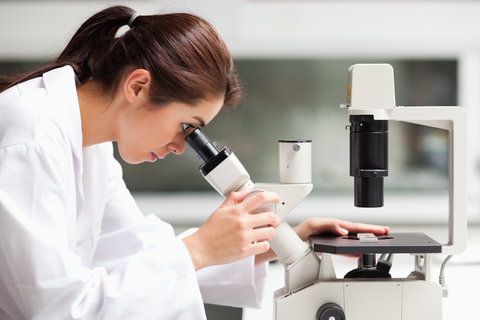Mikota awarded Innovate UK Challenge Fund grant

Mikota Ltd, a Pembroke Dock-based biotechnology and medical device start up, is looking to commercialise a new and novel hemocyanin extracted from the invasive slipper limpet with the support of Innovate UK funding.
The slipper limpet is a new, novel and very cost effective source of hemocyanin. The present gold standard, KLH, is sourced from the giant keyhole limpet, a species that is under threat, so the slipper limpet is a timely alternative.
The Innovate UK funding follows on from an earlier hemocyanin feasibility study that was funded by LEADER funding from PLANED and Sustainable Development Funding from the Pembrokeshire Coast National Park Authority.
Business News Wales reports the medicines manufacturing grant is in collaboration with Cardiff University, with expertise provided from Dr Mark Young and Prof Thomas Wirth. The project has allowed Mikota to take on three Professional Training Year students, part of the company’s employability programme to get students “employment ready” by the time they graduate.
Mikota is looking to improve on its present extraction and purification protocols to create an improved product that the company will take to market over the next six to twelve months.
Mikota is the first company to extract hemocyanin from slipper limpets and is actively forming new partnerships and collaborations to exploit this new technology. The Innovate UK grant award was part of a monumental last quarter of 2018 for the company with the signing of an MoU with a large global medical device manufacturer and its multi-city trade mission to Korea, which has become a key export destination for marine sourced products.
Mikota harvests slipper limpets from the Welsh coast to extract hemocyanin for use in anti-cancer, immunology and antibody creation. Mikota showcased this new hemocyanin product, BioCyanin, at MEDICA in Dusseldorf last year, alongside Maricoll, its medical collagen product.
While hemocyanin has been extracted from other marine sources, Mikota’s innovative decision to source it from slipper limpets has opened up an abundant new source. Slipper limpets, an invasive species in the UK, are in plentiful supply, so the products produced from them are cheaper than similar products from other sources.
Harvesting the limpets also has environmental benefits. If slipper limpets take over an area, they can create a toxic environment for other marine life. By harvesting the limpets, Mikota will be clearing the way for a more balanced ecosystem, which includes native oyster beds.
Mikota founder, Alex Mühlhölzl, said “Slipper limpets can have a massive impact on native oysters, and by cutting their population we can inject new life into oyster beds that have effectively died off. Meanwhile we can extract hemocyanin and collagen, which have a wide range of medical uses. Mikota is not just a biomaterials company; we are also developing medical devices in the fields of regenerative medicine, advanced wound care, cartilage repair and osteo, with a range of our own products and patents in development. Our collagen product, Maricoll, is the perfect material for developing new collagen based devices, as well as directly substituting into present bovine/porcine collagen formulations. Our BioCyanin is a new hemocyanin protein adjuvant aimed at the anti-cancer, immunology and anti-body markets. We are undertaking a range of cell screening and research projects focused on those fields.”








